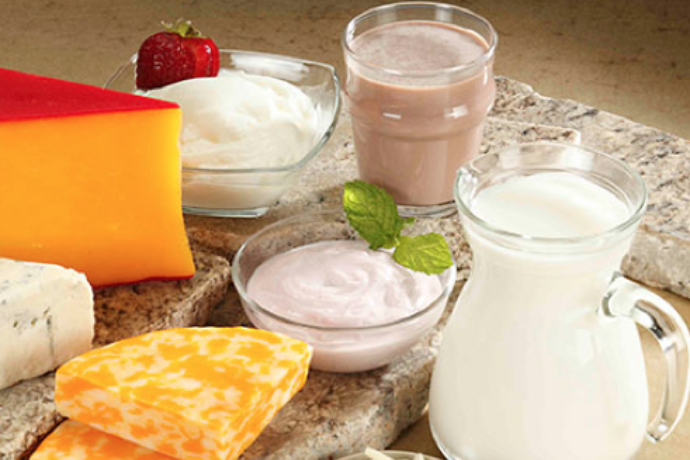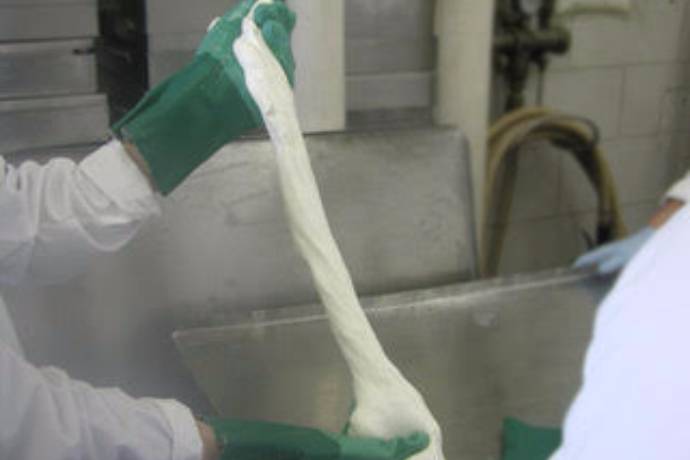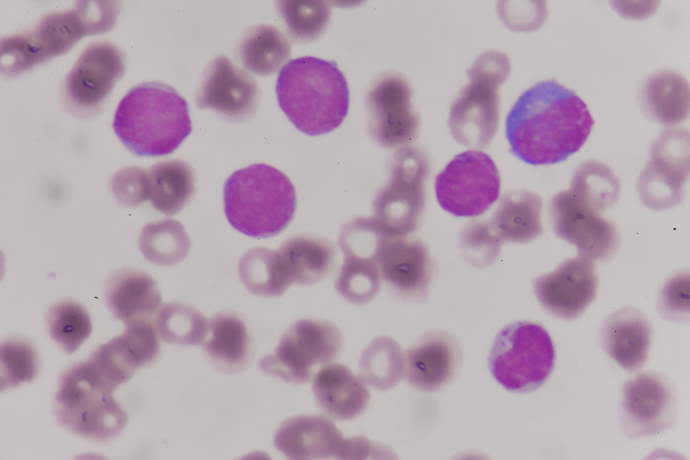The Western Dairy Center (WDC) is a dairy research center with a network of universities, researchers, industry organizations & companies, and dairy food science masters and PHD students. Our facilities develop dairy food science to improve the dairy industry and the food we eat! Universities within our network include
- Boise State University
- Brigham Young University
- Brigham State University–Idaho
- Oregon State University
- University of Idaho
- University of Utah
- Utah State University
- Washington State University
- Weber State University
Each facility has staff and resources dedicated to educating MS and PHD students and preparing them for careers in the dairy food science industry while conducting research to better the dairy manufacturing process. But each facility can help students toward a diverse range of careers.
Internal Link:
History and Purpose of the WDC
What is Dairy Food Science, and What do Dairy Food Scientists do?
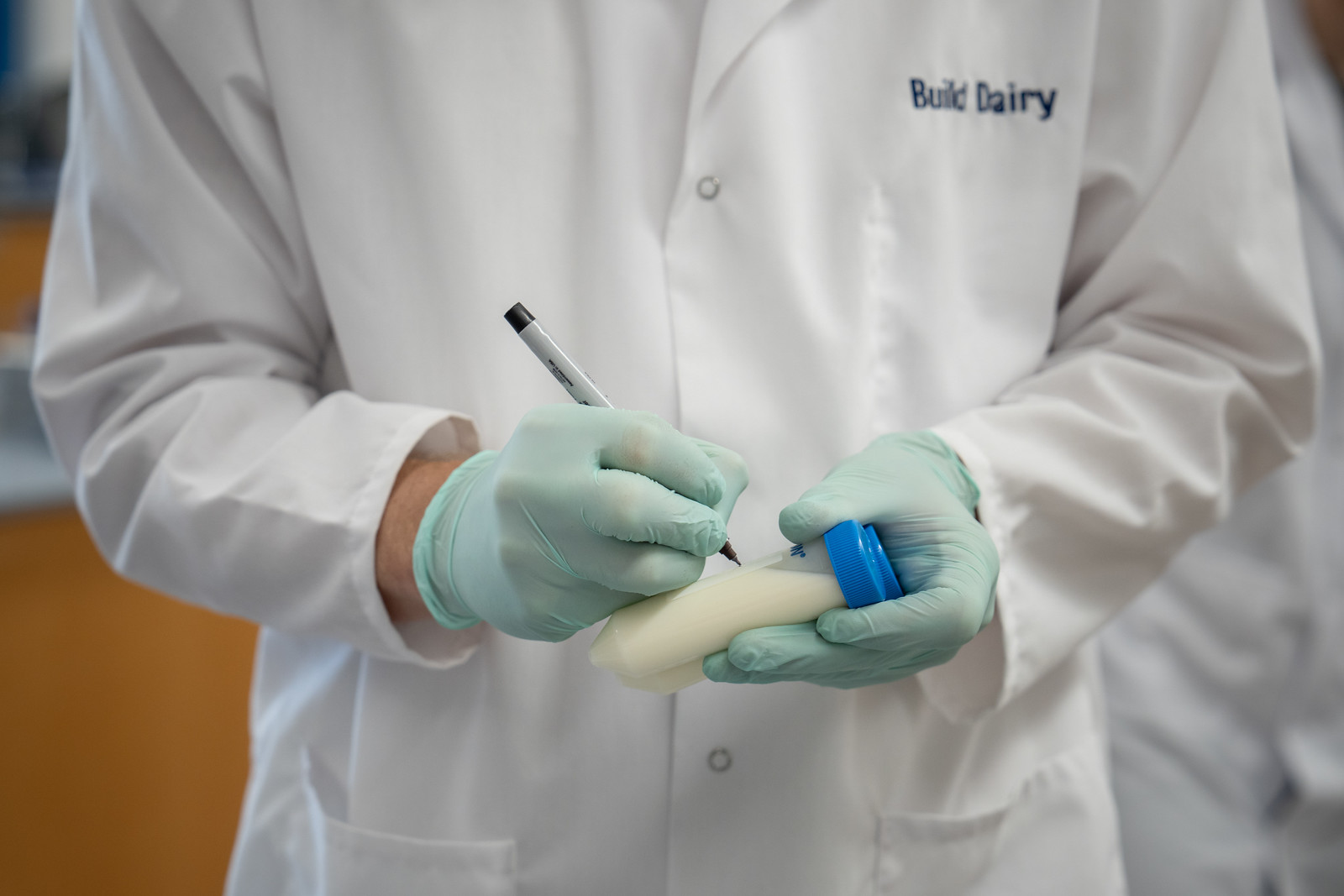
Dairy Food science is the study of dairy foods to improve taste, quality, efficiency, and sustainability using chemistry, biology, nutrition, and microbiology. The broad field of food science is the scientific version of being a chef. But a dairy food scientist is specialized to improve a multi-billion dollar industry by shaping the most basic human food into a wide array of deliciousness.
Using enzymes, bacteria, and new technologies, dairy food science improves the dairy foods:
- Milk
- Cream
- Butter
- Fermented
- Yogurt
- Cheese
- Custard
- Ice cream
Dairy Food Scientist Short Courses
To have a few days in the life of a dairy food scientist, consider taking one of these annual ice cream or cheese making classes that our Utah State University, Washington State University, and Oregon State University professors teach.
External Video:
Occupational Video - Food Scientist
External Article:
What Does a Food Scientist Do?
What are the Qualifications for a Career in Dairy Food Science?
Having a career in dairy food science is just a master’s degree away. Students will study chemistry, biology, nutrition, and microbiology in order to develop safe, delicious, and nutritious foods
Each of the WDC networked universities has different requirements and different levels of education prepared.
- Boise State University: Chemistry and Biochemistry
- Brigham Young University: Nutrition, Dietetics, and Food science
- Brigham State University–Idaho: Nutrition
- Oregon State University: Food Science and Technology
- University of Idaho: Food Science
- University of Utah: Department of Nutrition and Integrated Physiology
- Utah State University: Nutrition and Food Science
- Washington State University: Food Science
- Weber State University: Microbiology
What are the Skills needed for a Dairy Food Science Career?
Along with essential skills, including food chemistry, microbiology, sensory evaluation, and quality control, here are the top skills needed by a Dairy Food Scientist:
- Communication. Communication skills are critical for agricultural and food scientists. They must explain their studies: what they were trying to learn, the methods they used, what they found, and what they think the implications of their findings are. They must also communicate well when working with others, including technicians and student assistants.
- Critical-thinking. Agricultural and food scientists must use their expertise to determine the best way to answer a specific research question.
- Data-analysis. Agricultural and food scientists, like other researchers, collect data using a variety of methods, including quantitative surveys. They must then apply standard data analysis techniques to understand the data and get the answers to the questions they are studying.
- Mathematics. Agricultural and food scientists, like many other scientists, must have a sound grasp of mathematical concepts.
- Observation. Agricultural and food scientists conduct experiments that require precise observation of samples and other data. Any mistake could lead to inconclusive or inaccurate results.
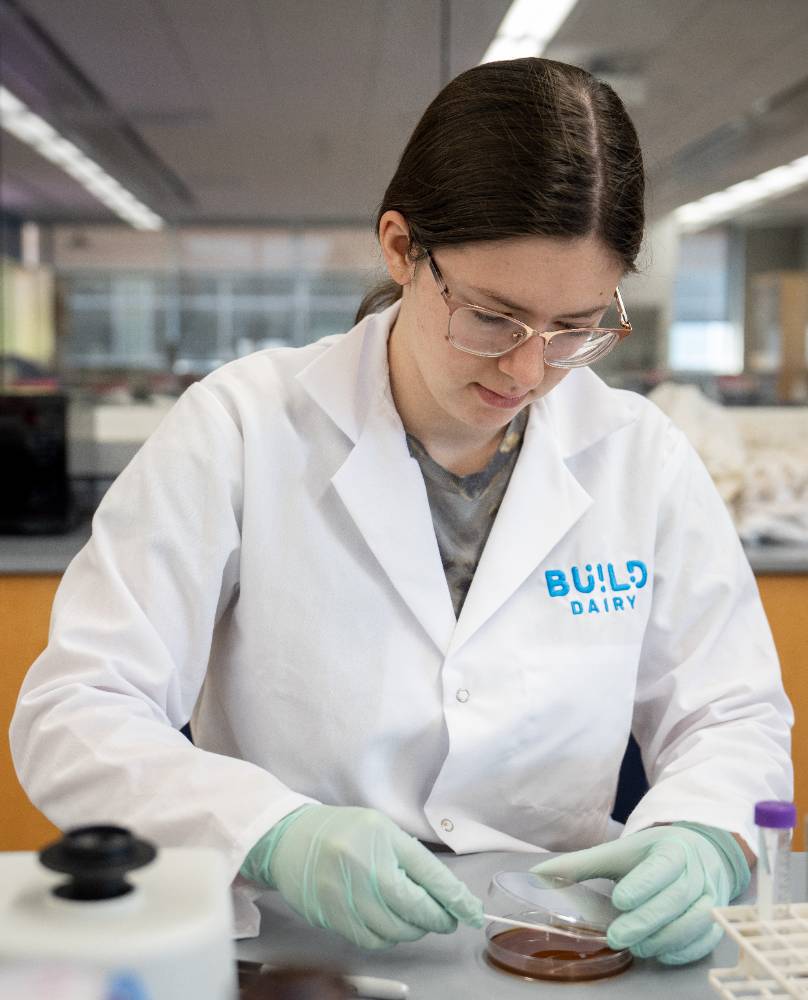
External Article:
How to Become an Agricultural or Food Scientist
What are the Different Career Paths in Dairy Food Science?
Dairy food science offers a diverse range of career paths across various sectors of the food industry. Here are some of the different career paths you can pursue within the field of dairy food science:
Product Development Scientist: Work as a part of a team to create new dairy products or improve existing ones. This role involves researching, experimenting, and formulating recipes to achieve desired taste, texture, and nutritional content.
Sensory Scientist: Use sensory analysis techniques to evaluate the taste, smell, texture, and appearance of dairy products. This role helps ensure consistency in product quality and consumer satisfaction.
Research Scientist: Work in research institutions or companies to conduct studies on dairy products, explore innovative technologies, and contribute to advancements in dairy food science.
Dairy Microbiologist: Study the microbial processes involved in dairy production, such as fermentation and culturing, to develop safe and high-quality dairy products.
Food Technologist: Apply scientific principles to develop and improve dairy product formulations, packaging, and processing methods.
Cheesemaker: If you have a strong passion for the art of cheese-making, you can become a specialized cheesemaker who creates unique and high-quality cheeses.
Dairy Inspector: Work with regulatory agencies to inspect dairy facilities for compliance with safety, quality, and sanitation standards.
Employers can be founded in academia, government, and the private sector.
External Video:
6 jobs you can do with a food science degree
How to Get Started in a Dairy Food Science Career with the WDC?
After accomplishing a BA in a chemistry, engineering, biology, microbiology, nutrition, dietetics, or food science field with some basic knowledge in dairy foods, then students must be accepted by one of the networked universities, find a professor, and develop a research topic.
Our websites provide more information on how to get started:
Western Dairy Center: Network
BUILD Dairy: Financial Aid
The WDC’s BUILD Dairy program helps provide students with financial aid and establishes their professional network:
What is BUILD Dairy?
What is the Job Outlook for Dairy Food Science Careers in the Western United States?
The job outlook for food scientists is growing faster than the national average, they have a large number of job openings, and will have new and emerging occupations.
The western United States has a significant agricultural presence, and dairy farming is an essential component of this sector. The focus on sustainability and innovation in agriculture, including dairy production, is likely to create opportunities for Dairy Food Scientists. Roles related to improving efficiency, reducing environmental impact, and developing new products may be in demand.
External Links:
Occupational Outlook Handbook: Agricultural and Food Scientists
O*net Online: Food Scientists and Technologists
What is the Salary Range for Dairy Food Scientists?
In the western, rocky mountain region, food scientists earn on average annually $48,340 – $78,860, depending on the region.
|
Entry-level |
Experienced |
|
$40,000 to $60,000 |
$60,000 to $90,000 |
Annual Wages statistics of states in the WDC network, as reported on O*Net.org:
How Does Dairy Food Science Impact the Food Industry?
The research happening in dairy food science literally makes its way to the dinner tables in homes across the nation. Some examples of the research performed at the WDC are:
- Clarified the role that calcium plays in controlling the texture of melted cheese on pizza
- Developed extruded whey protein used in high-protein crisps and protein bars and supplements
- Helped the dairy community gain a better understanding of lactic acid bacteria with affects the flavor of cheeses.
The current challenges in the dairy industry include the changing demands of the consumer, integrating new technologies, competition from alternatives (like almond milk), consumer misinformation about health and diet, and climate change’s effect on cattle and feed.
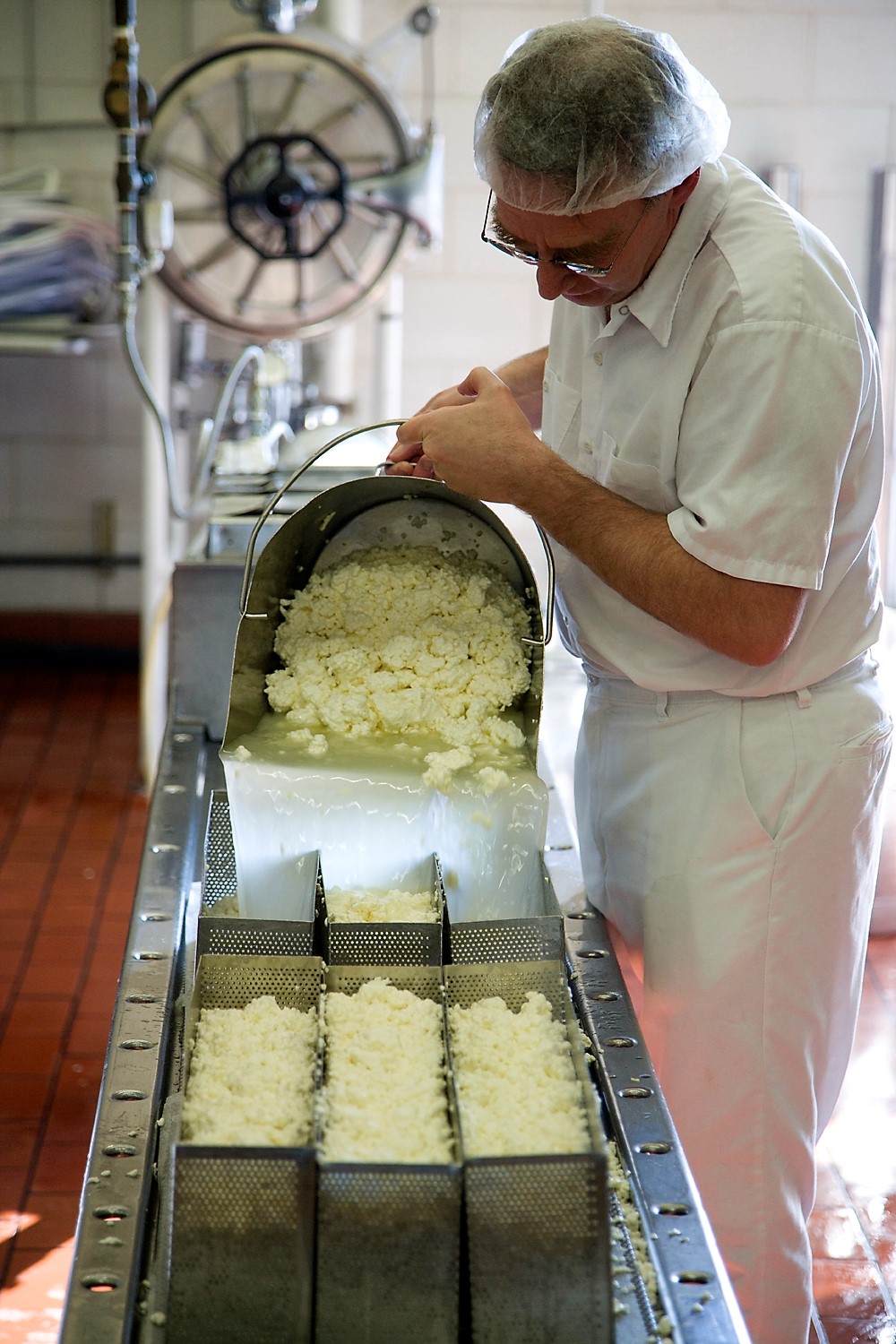
Can Dairy Food Scientists Contribute to Sustainability?
Dairy production can have a significant environmental footprint due to factors like greenhouse gas emissions, water usage, and land use. Since 2007 the dairy industry has made significant improvements:
- Dairy farmers in the U.S. have reduced their water usage by 30%
- Greenhouse emissions have been reduced by 19%
- Land use has been reduced by 21% (by way of cover crops, reduced till and no till, crop rotation, nutrient stewardship, grazing & feed management, and edge of field practices)
A More Sustainable and Secure Dairy System
External Articles:
Dairy farmers are finding ways to conserve water and reduce waste while producing more milk than ever
Reducing Dairy's Greenhouse Gas Emissions
Dairy Industry Aims for GHG Neutrality
What is the Future of Dairy Food Science Careers?
The Western Dairy Center will continue to grow and improve the dairy industry. We are dedicated to research all the way to our family-owned dairy farms. As the BUILD Dairy program has flourished, the number of graduate students from five to over 50 (Dairy West, 2019). Consumption of dairy is also increasing.
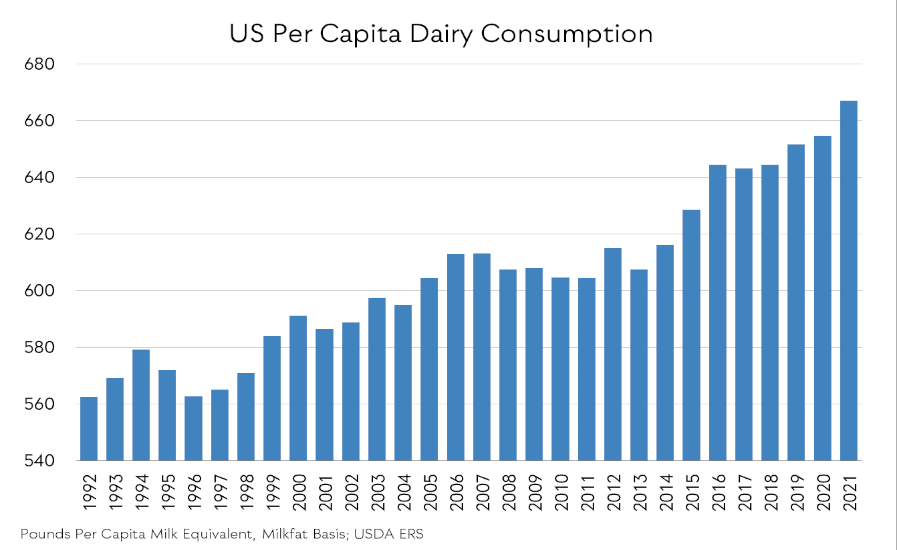
Dairy is a critical part of the economy in various ways, contributing significantly to local, national, and global economic systems. Its impact spans across multiple sectors and industries., and we are very pleased to be a key contributor in the dairy industries sustainability
External Articles:
American Diary Consumption Reaches and Record in 2021
Conclusion
The future in dairy is bright and delicious! We are the safe-keepers of today’s dairy and the creators of tomorrow’s next dairy product. With the help of the Western Dairy Center and its BUILD Dairy program, any good student can succeed as a dairy food scientist.



